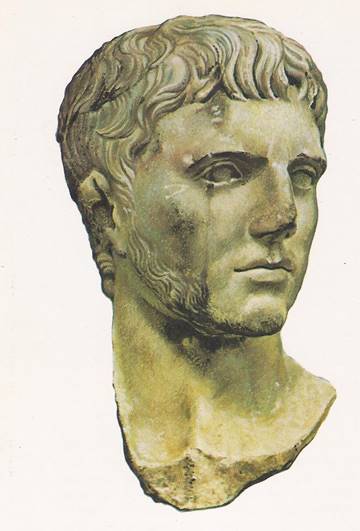THERE was one man who had more to do with the future of the Christian church than even the apostles themselves, and his name was Paul, or Saul in Hebrew. He was the greatest of all Christian missionaries. Much more is known about Paul than about other leaders of the early church, for he wrote or dictated long letters of instruction and encouragement to various missions he had established. These letters were called epistles. A number of them were preserved and published. In addition, most of the Acts of the Apostles, the fifth book of the New Testament, deals with Paul and his teachings. Taken together, his epistles and the chapters of the Acts devoted to him make up almost one half of the New Testament. One of the most amazing things about Paul was that he first came to the attention of the brethren in Jerusalem as a dangerous enemy of the church. He was first mentioned in the Acts as one of those present during the stoning of Stephen: “And the witnesses laid down their garments at the feet of a young man named Saul.” He was one of the angry mob crying for the blood of Stephen, and he guarded the cloaks of the executioners while they were casting their stones. Paul was the kind of man who had to live by his faith. He was a Pharisee, well-educated in the Law, proud of his rich Jewish heritage and deeply loved the God of Israel. Anyone who mocked or offended God was guilty of blasphemy and deserved to be punished. There was no doubt in Paul’s mind that Stephen was guilty. Paul hated him for it and eagerly joined with those whom he believed to be carrying out the Lord’s punishment. According to tradition, Paul was short, …
Read More »The Second Triumvirate 43 B. C. – 30 B. C.
AS THE news of Caesar’s death spread through Rome, sorrow, anger and fear took hold of the city. On March 17, two days after the murder, the Senate met again. Cassius, Brutus and the other assassins took their usual places. There was no doubt that most of their fellow senators felt that they had done the right thing in ridding Rome of a tyrant, but Caesar’ s veterans were still in the city, taking their orders now from Marcus Aemilius Lepidus, who had been his Master of the Horse, the commander of the cavalry. Mark Antony was still consul, he had not yet said what he intended to do about Caesar’s murder, but certainly he would not forgive the killers.Of course, no one could tell what the mob might do. If the people took it into their heads to avenge the murder of their hero, there might be many more killings. So it was a cautious, quiet group of men who gathered in the Senate to discuss the death of Caesar and the future of Rome. When Mark Antony spoke, he surprised them by not demanding that the assassins be arrested and put on trial. Perhaps he was afraid that they had strong forces of their own or that he might be the next victim. Whatever his reasons were, he offered to make a bargain. He would agree to let the assassins go unpunished, if the Senate would agree to approve Caesar’s will and allow his friends to give him a proper, public funeral. To the senators, the terms sounded fair — better, in fact, than they had hoped for. They quickly agreed to their part of the bargain, ended the meeting and went home, congratulating themselves that it all had been so easy. THE FUNERAL OF CAESAR On the …
Read More »

